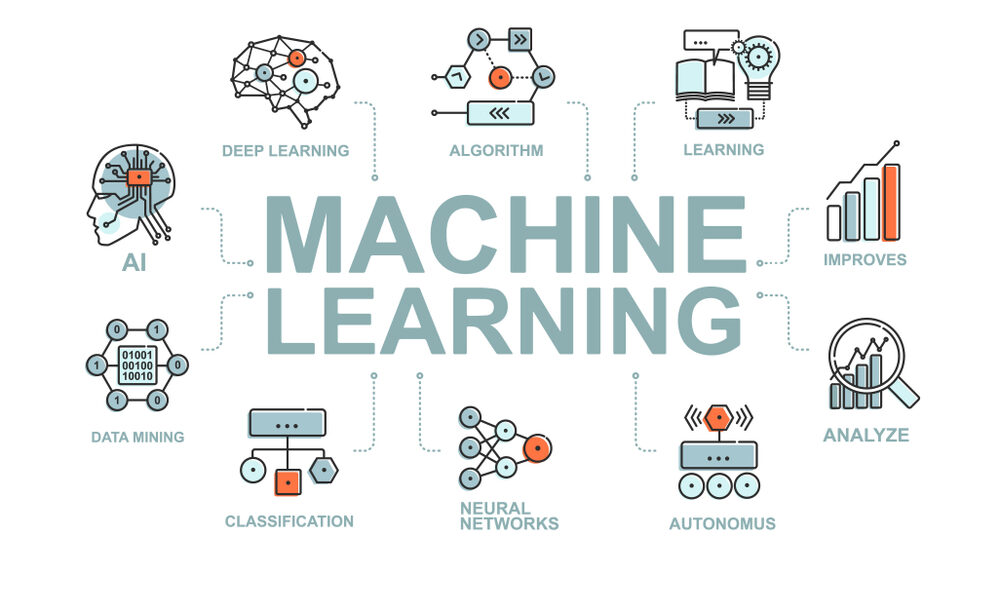Here is the list of all the Key Concepts for Machine Learning Interviews:
1. Supervised Learning: Understand the basics of supervised learning, where models are trained on labeled data. Key algorithms include Linear Regression, Logistic Regression, Support Vector Machines (SVMs), k-Nearest Neighbors (k-NN), Decision Trees, and Random Forests.
2. Unsupervised Learning: Learn unsupervised learning techniques that work with unlabeled data. Familiarize yourself with algorithms like k-Means Clustering, Hierarchical Clustering, Principal Component Analysis (PCA), and t-SNE.
3. Model Evaluation Metrics: Know how to evaluate models using metrics such as accuracy, precision, recall, F1 score, ROC-AUC, mean squared error (MSE), and R-squared. Understand when to use each metric based on the problem at hand.
4. Overfitting and Underfitting: Grasp the concepts of overfitting and underfitting, and know how to address them through techniques like cross-validation, regularization (L1, L2), and pruning in decision trees.
5. Feature Engineering: Master the art of creating new features from raw data to improve model performance. Techniques include one-hot encoding, feature scaling, polynomial features, and feature selection methods like Recursive Feature Elimination (RFE).
6. Hyperparameter Tuning: Learn how to optimize model performance by tuning hyperparameters using techniques like Grid Search, Random Search, and Bayesian Optimization.
7. Ensemble Methods: Understand ensemble learning techniques that combine multiple models to improve accuracy. Key methods include Bagging (e.g., Random Forests), Boosting (e.g., AdaBoost, XGBoost, Gradient Boosting), and Stacking.
8. Neural Networks and Deep Learning: Get familiar with the basics of neural networks, including activation functions, backpropagation, and gradient descent. Learn about deep learning architectures like Convolutional Neural Networks (CNNs) for image data and Recurrent Neural Networks (RNNs) for sequential data.
9. Natural Language Processing (NLP): Understand key NLP techniques such as tokenization, stemming, and lemmatization, as well as advanced topics like word embeddings (e.g., Word2Vec, GloVe), transformers (e.g., BERT, GPT), and sentiment analysis.
10. Dimensionality Reduction: Learn how to reduce the number of features in a dataset while preserving as much information as possible. Techniques include PCA, Singular Value Decomposition (SVD), and Feature Importance methods.
11. Reinforcement Learning: Gain a basic understanding of reinforcement learning, where agents learn to make decisions by receiving rewards or penalties. Familiarize yourself with concepts like Markov Decision Processes (MDPs), Q-learning, and policy gradients.
12. Big Data and Scalable Machine Learning: Learn how to handle large datasets and scale machine learning algorithms using tools like Apache Spark, Hadoop, and distributed frameworks for training models on big data.
13. Model Deployment and Monitoring: Understand how to deploy machine learning models into production environments and monitor their performance over time. Familiarize yourself with tools and platforms like TensorFlow Serving, AWS SageMaker, Docker, and Flask for model deployment.
14. Ethics in Machine Learning: Be aware of the ethical implications of machine learning, including issues related to bias, fairness, transparency, and accountability. Understand the importance of creating models that are not only accurate but also ethically sound.
15. Bayesian Inference: Learn about Bayesian methods in machine learning, which involve updating the probability of a hypothesis as more evidence becomes available. Key concepts include Bayes’ theorem, prior and posterior distributions, and Bayesian networks.






